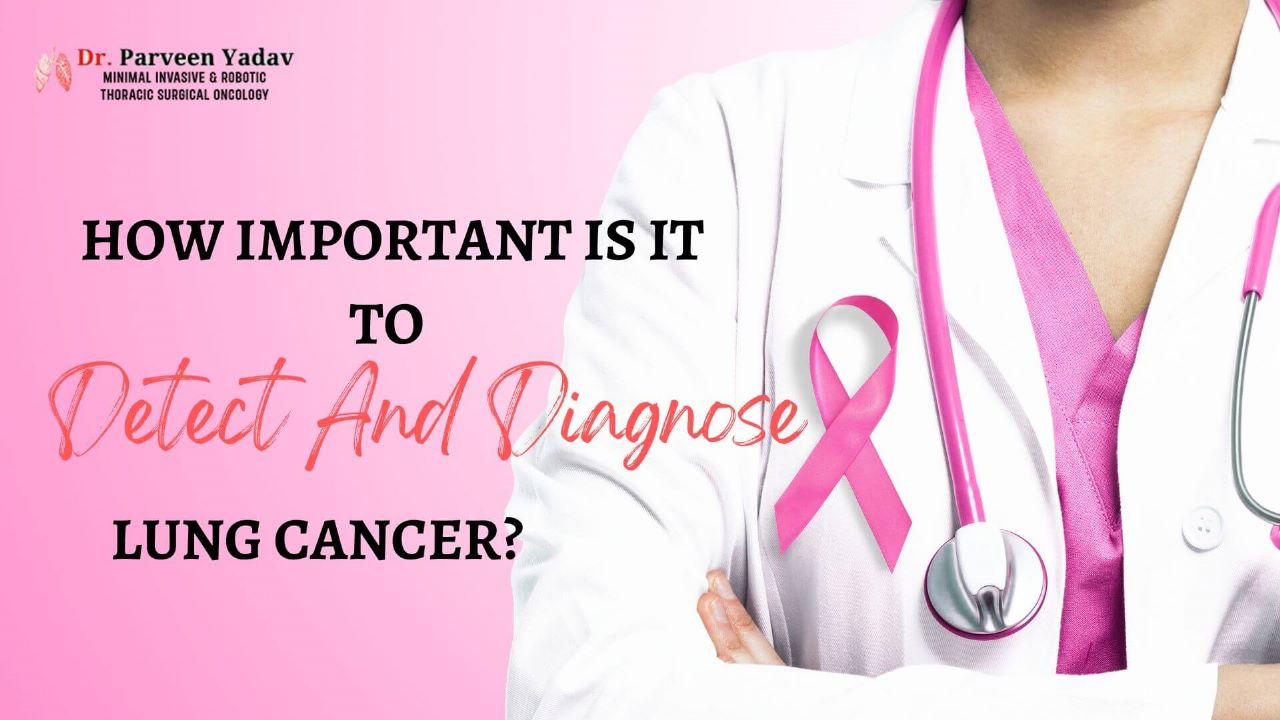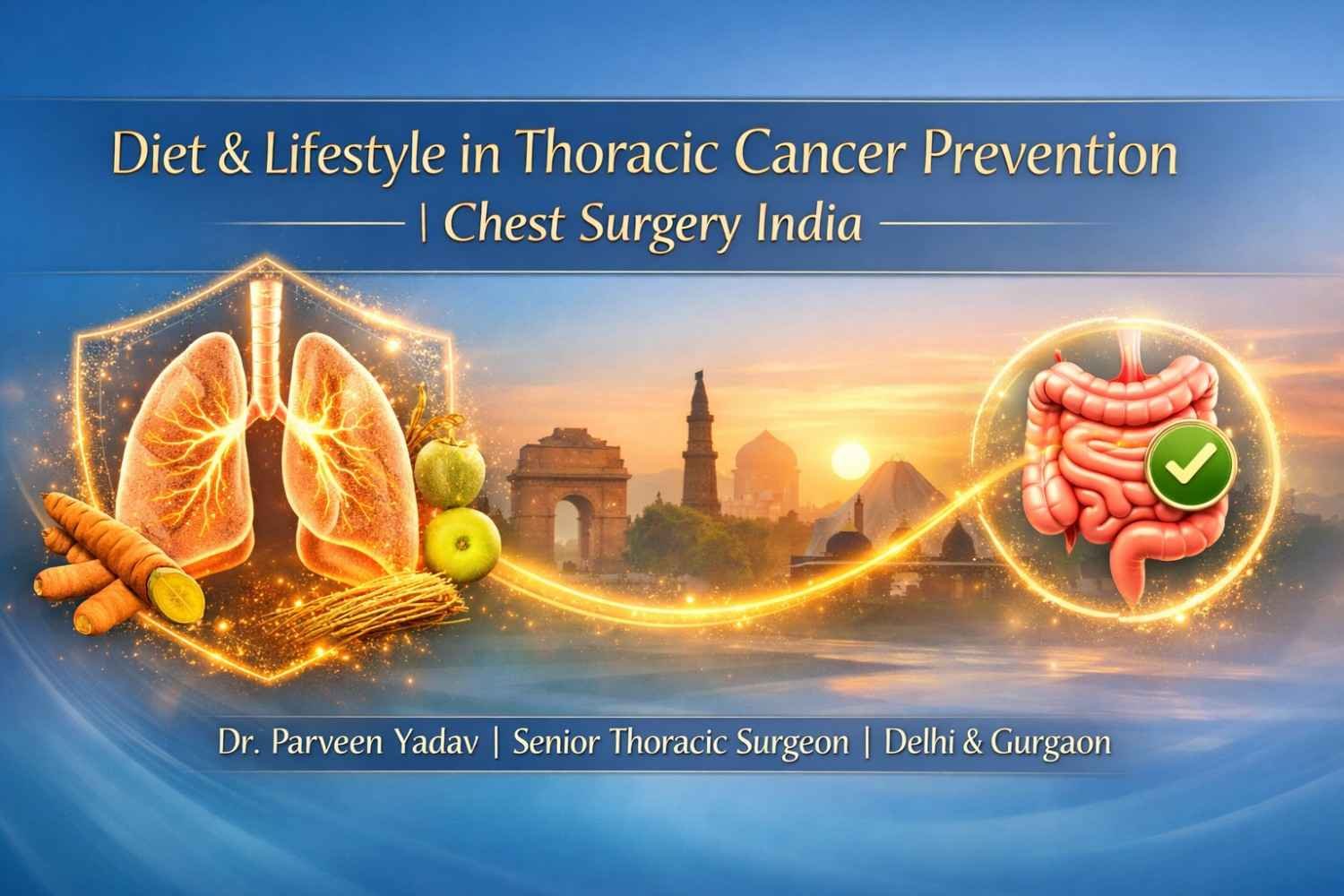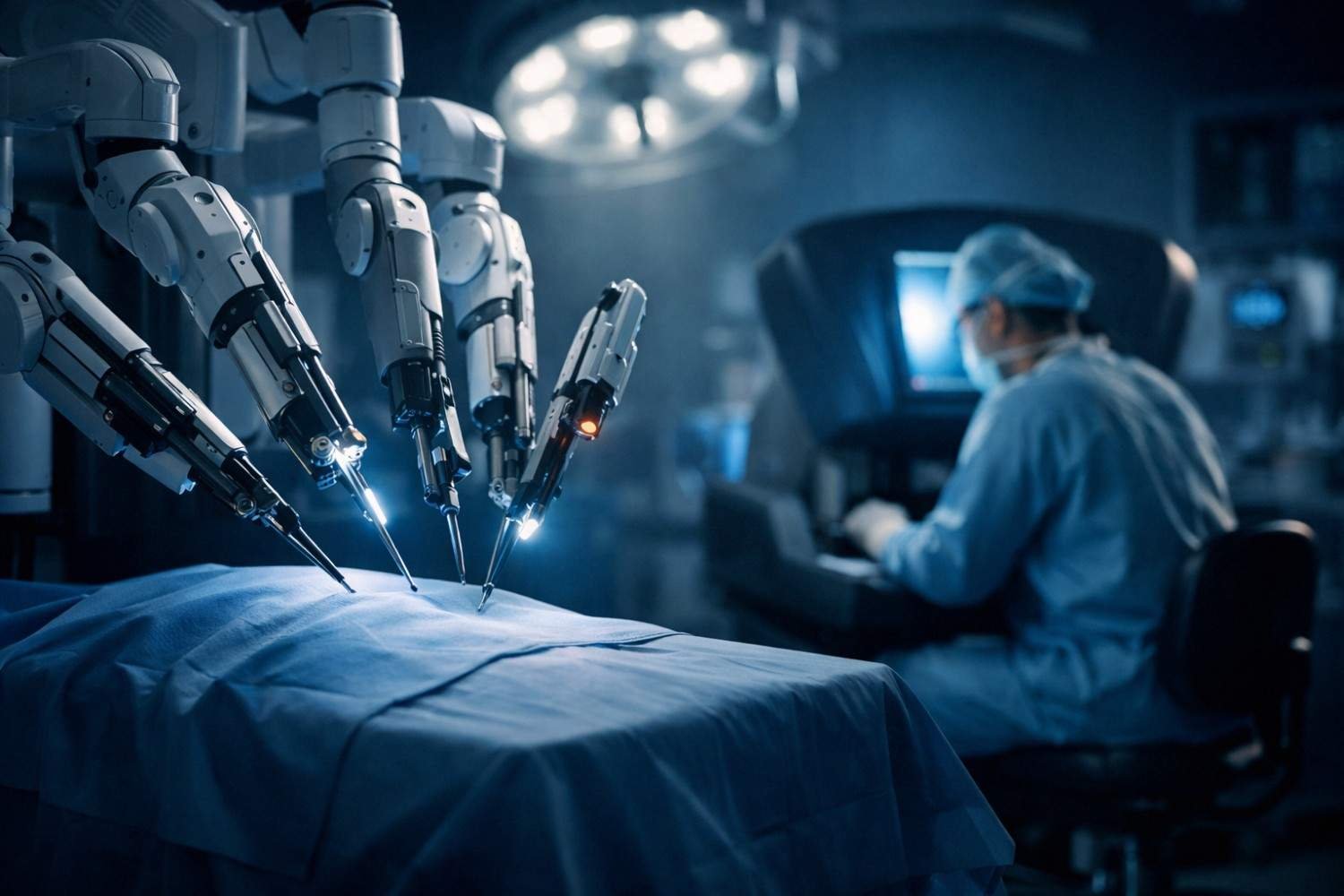

Lung cancer is too serious an issue to be ignored. However, most lung cancer cases are diagnosed at a much later stage. This is primarily because the symptoms of lung cancer are not taken seriously by the patients and their loved ones.
Symptoms like difficulty in breathing, a persistent cough, a hoarse voice, a wheezy breath, etc., are often ignored by people, assuming they have a minor health complication. Little do they know that these symptoms escalate and turn into critical lung cancer.
This is what makes detecting and diagnosing lung cancer important. If you or any of your loved ones have been struggling with these symptoms, make sure you approach a specialized doctor in your city. If you live in New Delhi, rush to the best lung cancer specialist in New Delhi to get the issue diagnosed and treated.
Before understanding why it is important to diagnose it, let us briefly understand what lung cancer is.
What Is Lung Cancer?
Lung cancer is a health complication that results due to uncontrolled division of mutated cells in your lung tissue. If not diagnosed and treated on time, it can increase the magnitude of damage caused to your body, ultimately proving fatal.
Although lung cancer starts in your lungs, the tumor may spread to other organs of your body, making it important to detect it before it is too late. Getting the best lung cancer treatment in Delhi will help you get rid of the tumor and get back to normalcy.
Why Is It Important To Detect And Diagnose Lung Cancer?
The simple answer to this question is that it prevents your health from getting worse. Prolonged exposure to lung cancer can be life-threatening. Detecting and diagnosing it early on increases your chances of getting well soon and restoring your lungs' normalcy.
Here are a few major effects of lung cancer that should prompt you to diagnose the issue as early as possible:
Breathing Difficulties
Lung cancer can cause breathing difficulties due to the tumor's growth, which restricts the airflow in the lungs. As the tumor grows, it can block or narrow the air passages, making it harder for the person to breathe. This can result in shortness of breath, wheezing, and a persistent cough.
Reduced Lung Function
The tumor's growth can also reduce lung function by reducing the amount of space in the lungs for air to flow. This can lead to reduced oxygen levels in the blood, which can cause fatigue, weakness, and headaches.
Spreading Of Cancer To Other Parts Of The Body
If lung cancer is not detected and treated early, it can spread to other parts of the body, such as the liver, brain, or bones. This can cause additional complications and symptoms, depending on the location and severity of the metastasis.
Weight Loss And Malnutrition
Lung cancer can cause weight loss and malnutrition due to a combination of factors. The tumor can increase the body's metabolic rate, making it harder for the person to maintain a healthy weight. Additionally, the person may experience a loss of appetite due to the cancer's impact on their digestive system.
Increased Risk Of Infection
Lung cancer can weaken the immune system, making the person more susceptible to infections. This can result in frequent illnesses and a decreased ability to fight infections.
Emotional And Mental Health Issues
Lung cancer can have a significant impact on a person's emotional and mental health. The diagnosis and treatment of lung cancer can be stressful and overwhelming, and it can lead to feelings of anxiety, depression, and isolation.
Diagnostic Tests For Lung Cancer
Once you approach the best lung cancer specialist in New Delhi, the doctor will conduct a basic physical examination and ask you questions about your symptoms. Depending on the initial check-up, they will recommend the right diagnostic tests to detect lung cancer and its severity.
Here are a few major diagnostic tests performed to detect and diagnose lung cancer:
Imaging tests
Imaging tests are often the first step in diagnosing lung cancer, and they can help identify the size, location, and extent of the cancer. Common imaging tests include:
Chest X-ray
A chest X-ray can show abnormalities in the lungs, such as nodules, masses, or fluid buildup.
CT scan
A CT scan provides a detailed image of the lungs and can detect small nodules or masses that may be missed by a chest X-ray.
PET scan
A PET scan can help identify cancerous areas in the lungs and other parts of the body.
Sputum Cytology
Sputum cytology involves analyzing a sample of mucus coughed up from the lungs to look for cancer cells.
Biopsy
A biopsy involves removing a small sample of tissue from the lung for analysis. There are several types of biopsies, including:
Bronchoscopy
This procedure involves passing a thin, flexible tube through the mouth or nose and into the lungs to take a sample of tissue or fluid.
Needle biopsy
This procedure involves inserting a needle through the chest wall to remove a sample of tissue from the lung.
Thoracentesis
This procedure involves removing a sample of fluid from the space between the lungs and the chest wall to look for cancer cells.
Molecular testing
Molecular testing involves analyzing the DNA of cancer cells to identify specific genetic mutations that can help guide treatment decisions.
Blood Tests
Blood tests can help identify tumor markers or other abnormalities that may indicate the presence of lung cancer.
It is important to note that diagnostic tests can also be performed to confirm whether the patient has lung cancer or not. It is possible for the doctor to conclude the absence of a cancerous tumor after performing these tests.
The Final Word
These were a few major reasons why it is important to detect and diagnose lung cancer. Never make the mistake of ignoring warning signs by assuming them to be futile. Even if a small symptom hints toward a complication like lung cancer, make sure you get yourself diagnosed.

18+ Yrs Exp | 5,700+ Thoracic & Robotic Cancer Surgeries
Dr. Parveen Yadav is a Director and Senior Consultant in Thoracic and Surgical Oncology, specializing in minimally invasive and robotic lung and esophageal surgeries, with advanced training from AIIMS and Tata Memorial Hospital.
View Full Profile Pain After Thoracic Surgery: Tips for Smooth Recovery
Pain After Thoracic Surgery: Tips for Smooth Recovery
 Diet & Lifestyle for Thoracic Cancer Prevention | Dr. Parveen Yadav
Diet & Lifestyle for Thoracic Cancer Prevention | Dr. Parveen Yadav
 Robotic Thoracic Surgery: How Da Vinci Technology is Revolutionizing Chest Procedures
Robotic Thoracic Surgery: How Da Vinci Technology is Revolutionizing Chest Procedures
Struggling with pain after chest surgery? Dr. Parveen Yadav shares expert recovery tips, causes of shoulder pain, PTPS signs, and what your discharge sheet won't tell you.
Discover how diet, breathing exercises & daily habits help prevent and recover from thoracic cancer. Expert insights from Dr. Parveen Yadav, Chest Surgery India
Discover how Da Vinci robotic surgery is transforming chest procedures in Gurgaon. Less pain, faster recovery & expert care by a certified thoracic surgeon
Copyright 2026 © Dr .Parveen Yadav all rights reserved.
Proudly Scaled by Public Media Solution!